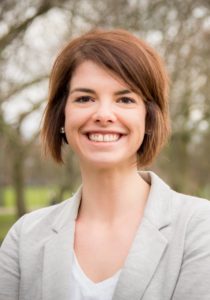Oxford Brookes University will host the 10th Biennial AAGE Conference on the theme Culture, Commitment and Care across the Life Course. This two-day conference is organized in partnership between the Association of Anthropology, Gerontology, and the Life Course and members of ACYIG, and will focus on bridging themes between youth and old age, intergenerational relationships, and life course development from anthropological perspectives. It is of particular interest to students, scholars, and professionals interested in new perspectives on ageing and care in social gerontology, anthropology, sociology, social work, medical humanities, childhood studies, and public health.
Monthly Archives: November 2016
CfA: Hearing Children’s Voices in the Household Context
Papers are being sought to round out the panel being proposed for the ACYIG 2017 Conference, titled “Hearing Children’s Voices in the Household Context.” Please email your 500-word abstract by Monday, November 28th, if you are interested in being included on the panel.
Panel Title: Hearing Children’s Voices in the Household Context
Co-Organizers: Aviva Sinervo and Christine El Ouardani
While there has been a move in the anthropology of childhood away from prioritizing the study of the household as the central institution involved in the socialization and wellbeing of the child, households continue to be key sites within which children learn about social norms, roles, and power dynamics that reflect the larger social organization of the communities within which they are embedded. At the same time, children’s narrations of—and contributions to—household dynamics and processes have often been left out of work on kinship and the economy of households that explores the structure and interaction of the family” across cultural contexts. In this panel, we aim to theorize the household as a nuanced space of interaction where children’s voices can help us to illuminate some of the domestic practices and perspectives that become obscured in simply relying upon adult accounts and/or the ethnographer’s own observations of family life. In doing so, we aim to pay close attention to the mechanisms that generate a household’s coherence or destabilization, and the ways in which other institutional contexts may compete with or replace the household as an important sphere within a child’s life.
Some of the questions this panel might explore include: Who composes the unit of the household and how is this unit constructed? What might distinguish the “household” from the “family”? How do households affect children’s identities? How do children’s self-positionings affect the dynamics within their households? What methodological approaches allow us to capture the complex negotiations that occur at the household level? In what ways does a focus on “voice” provide a helpful lens for interrogating the roles of children within households vis-à-vis a range of other actors? How do children’s perceptions of their households differ from public perceptions of those same households? How are children’s perspectives on households shaped by larger political, economic, emotional, and discursive factors? What can children’s voices add to our understanding of the household as a mundane but complicated sphere of social reproduction for all its members?
Papers are invited that take up these questions and ethnographically investigate how children make sense of their belonging to and participation in households. Please send a 500 word abstract by November 28th to Aviva Sinervo (asinervo [at] sfsu.edu) and Christine El Ouardani (Christine.elouardani [at] csulb.edu).
Neos highlights—Raising Spirit and Decolonizing Methods
On a clear prairie day this August, I found myself sitting at the Board of Education of the Piikani Nation listening to two staffers respond to photographs of Blackfoot families engaged in childrearing. The photos had been taken by parents associated with Opokaa’sin Early Intervention Society, a non-profit devoted to Aboriginal children and families in southern Alberta….
Continue reading Neos highlights—Raising Spirit and Decolonizing Methods
CfP: ACYIG 2017 Conference, “Children and Youth as Emotional Suspects”
ACYIG: 2017 Conference Panel
“Children and Youth as Emotional Suspects”
CALL FOR PAPERS
While there is always present in different historical periods forms of emotional regime (Reddy 2001), emotion is now being instrumentalized , managed, and incited in new ways within liberal democratic states. Contemporary developments in neuroscience, biology, and computer science have articulated with regimes of accumulation increasingly focused on capitalizing the social (Davies 2015), on connection, on emotion, and on the body (Rose 2007, Grosz 1995, Kraftl 2015). Continue reading CfP: ACYIG 2017 Conference, “Children and Youth as Emotional Suspects”
Meet the new NEOS Editor – Véronique Gilbert

Véronique Gilbert is currently completing her PhD in Social Anthropology at the University of Edinburgh (UK). Her dissertation, Mokk Pooj: Gender, Interpretive Labour and Sexual Imaginary in Senegal’s Art/Work of Seduction, examines the evolving gender relationships exposed by and contested through the Senegalese art of seduction, mokk pooj. It explores how imagining and responding to men’s needs and desires allows women to negotiate power and exert agency in a Muslim, patriarchal, polygamous context. Continue reading Meet the new NEOS Editor – Véronique Gilbert
